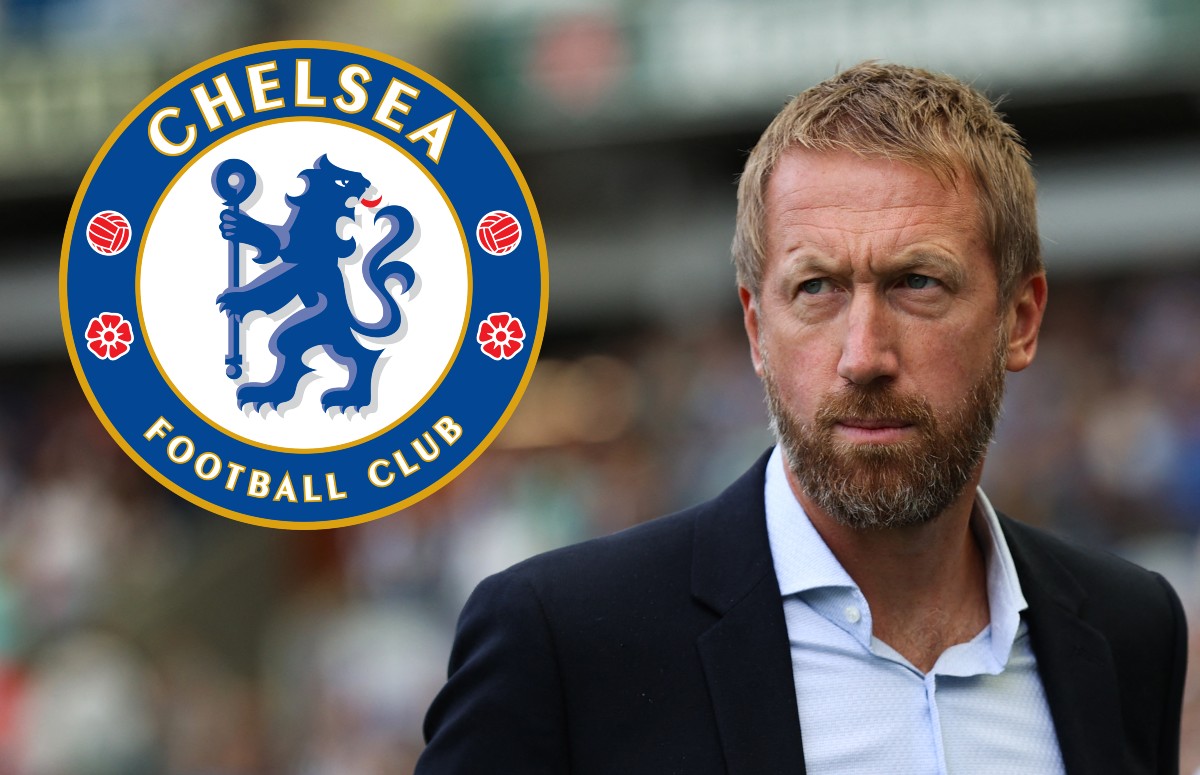Graham Potter: The Globetrotting Trailblazer Handed the Rarest of Chances

Excerpts of the following article are from September 16, 2022 courtesy of Breaking the lines by James Pendleton (@jpends_), https://breakingthelines.com/manager-analysis/graham-potter-the-globetrotting-trailblazer-handed-the-rarest-of-chances/.
As Howard Wilkinson lifted the Old First Division with Leeds United on May 2nd 1992, he wouldn’t have known that he’d be the last Englishman to ever accomplish that – especially when you consider no manager outside of Scotland, England or Northern Ireland had lifted the English top flight before.
Wilkinson somewhat bucked a trend with Leeds at the time, however, as he wrestled the trophy back from the four-year Scottish domination of England’s domestic crown – shared between Kenny Dalglish and George Graham. But he – and Everton’s Howard Kendall in 1987 – were the anomalies to the rule, with Sir Alex Ferguson dominating four of the following five years, with Kenny Dalglish once again sandwiched in between.
Arsène Wenger made history when he took Arsenal to a first title in some seven years in 1998 as he became the first foreign manager to finish top of the pile – but Wenger made a career out of revolutionising the game and setting trends for others to follow, with his title success proving no different. Since then, eight other foreign managers have worn the crown, with the remaining exclusively dominated by Sir Alex Ferguson and Wenger himself.
Of course, Kevin Keegan came close in 1996 and probably should have won the league, but his Newcastle side fell away when it mattered most akin to how Ron Atkinson’s Villa side did similar against the same foe just three years earlier.
Despite the presence of Sir Bobby Robson, Terry Venables and Glenn Hoddle, no English manager came close again as Ferguson and Wenger formed a duopoly which José Mourinho eventually broke in 2004, as the jobs amongst the big boys have become more and more of an exclusive club for the division’s own coaches.
But why is that? Given the quality of English managers during the opening decade of the Premier League, did the river run dry or did the best clubs feel their chances were better with those from overseas?
At the turn of the century, only Manchester City were managed by an English manager in the shape of Joe Royle, but were also a far different entity to the one we see now. Royle led the Cityzens up the football pyramid from League One to the Premier League, before departing upon relegation where he was replaced by Kevin Keegan who was eventually followed by Stuart Pearce in 2005.
As City crashed through the footballing stratosphere, however, Pearce was duly replaced and no English manager has sat in the Etihad/Eastlands dugout since. But analysing City pre-takeover is fairly pointless, given the levels they’ve accelerated to since.
Tottenham have had more English managers, including another former national team boss as Glen Hoddle replaced George Graham in March of 2001, but his Spurs team flattered to deceive and he too was relieved of his duties in 2003.
The likes of Juande Ramos, Jaques Santini and Martin Jol took the hot seat before Harry Redknapp returned to the capital and led Tottenham to the Champions League for the first time since 1962 – earning him the Premier League’s Manager of The Season award, and becoming just the second gaffer to win the accolade in a season which his side didn’t win the title.
His FA Cup heroics from 2008 (which made him just the second Englishman to lift the FA Cup since 1992), coupled with his European achievements with Tottenham make him the ‘gold standard’ for English managers since the formation of the Premier competition. Meaning that, without diminishing two fantastic achievements (and several other smaller ones), the bar is not set impossibly high.
Spurs failed only to qualify again for the Champions League in 2012 thanks to Chelsea’s unlikely triumph, but Redknapp failed to agree terms on a new contract and was replaced by André Villas-Boas – but their own Mourinho gamble could only bring up a two and seven.
He was sacked sixteen months later and replaced by Tim Sherwood for the remainder of the 13/14 season. A former Spurs player and Premier League winner with Blackburn, he assumed managerial duties until season’s end before being replaced by Mauricio Pochettino.
Liverpool have enjoyed a rich history of Scottish managers and gaffers who have been promoted from within, winning trophies aplenty with the likes of Bill Shankly, Bob Paisley and Joe Fagan, before appointing their first ever manager from overseas in the shape of Gérard Houllier in 1998.
He worked in tandem with Roy Evans for the opening months of his tenure, but after that, he and Rafael Benítez took Liverpool through the 2000s and won almost everything there was to win, before the latter handed over the reins to Roy Hodgson following an exceptional spell at Fulham.
Hodgson, in some ways, was the original Graham Potter; a less than remarkable time as a player preceded an erudite and journeying career through many a dugout – turning out at San Siro and Ewood Park, with the UAE, Swiss and Finish national teams and winning five league titles across Sweden and Denmark.
He took Fulham to the cusp of the Europa League title which landed him the job at Anfield, but he joined Liverpool during a transitional period and couldn’t do enough to ride out the issues of the post-Benítez era – departing with mutual consent just six months into the season.
Liverpool returned to Dalglish who secured another pot and left the seat far warmer for Brendan Rodgers than Benítez had done for Hogdson, with the Northern Irishman coming within a whisker of lifting the 2013/14 title. Plenty of managers would have fallen on the sword which Hodgson did, but the move felt like a strange fit at the time and so it proved.
During all of this, two managers remained consistent; Sir Alex Ferguson and Arsène Wenger. While all changed around them, they continued to evolve and build team after team which could compete (albeit to different levels generally), and continued the ultimate Premier League rivalry.
Sir Alex would eventually retire in 2013 and help appoint David Moyes as his successor, while Wenger would depart soon after in 2018 following 22-years at the helm. Neither have since appointed an Englishman, but instead trialled Spanish, Dutch, Scottish, Portuguese and Norwegian managers at the wheel.
That takes us to Chelsea – perhaps the most notorious club in all of England for their hiring, firing and enquiring of managers. They – like City – shifted into this millennium as a different entity to the one we see now (albeit on a lesser scale), led by the guidance of Gianluca Vialli and later Claudio Ranieri.
Twelve appointments between ten different managers from six different nations manned the ship at Stamford Bridge from 2004-2019, when Chelsea – hit by a transfer ban and the loss of their best player – turned to former captain Frank Lampard to negotiate the choppy waters which lay ahead following a turbulent season in charge of Championship side Derby County.
At the time, it felt like an appointment to rejuvenate a fan base left ultimately torn following a rollercoaster period under Maurizio Sarri, and one necessary to fully utilise the club’s academy given their transfer embargo. Promoted and fast-tracked for sure, but the current Everton boss (funnily enough) became the first English manager at a top six side in 1,878 days since Sherwood at Spurs.
For the rest of the story “Graham Potter: The Globetrotting Trailblazer Handed the Rarest of Chances” in Breaking the Lines by James Pendleton (@jpends_), please go to: https://breakingthelines.com/manager-analysis/graham-potter-the-globetrotting-trailblazer-handed-the-rarest-of-chances/.




No Comments
Sorry, the comment form is closed at this time.